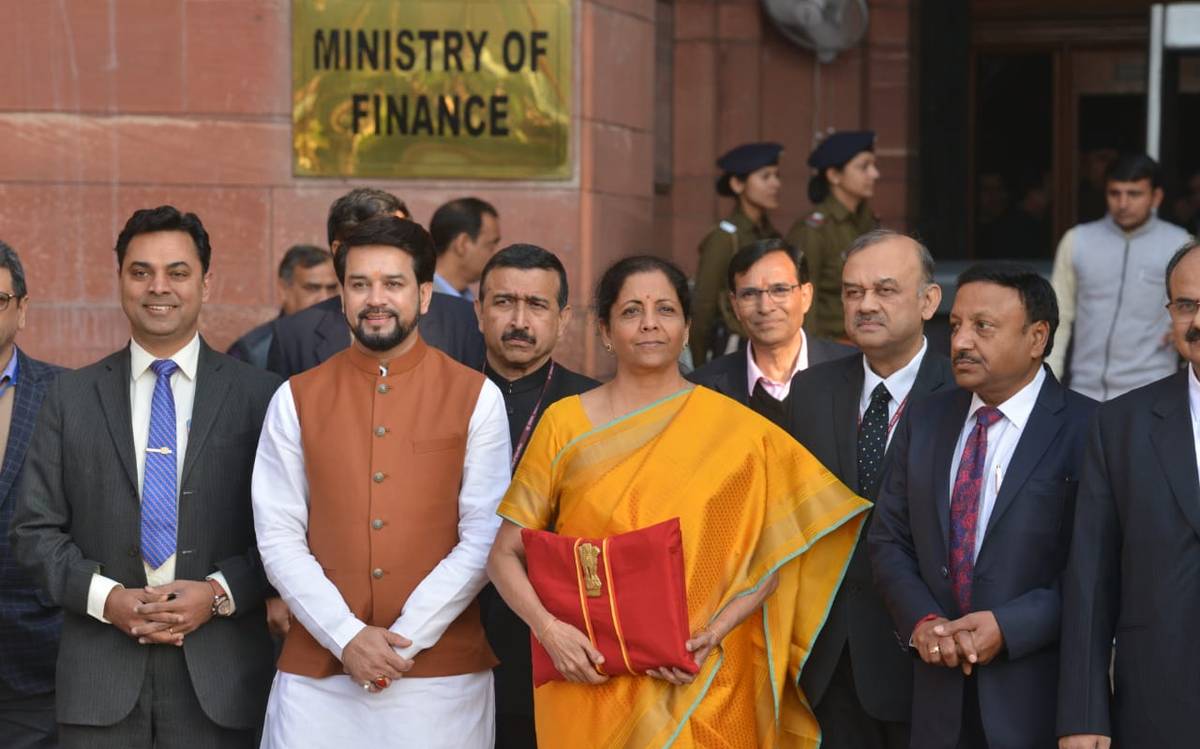SRINAGAR: With the Finance Ministry allocating Rs 30,757 crore for Jammu and Kashmir, the UT administration will now get busy in formulating the fiscal requirements for fiscal 2020-21. The UT of Ladakh got Rs 5,958 crore.

Apart from Dina Nath Nadim’s couplet, there were only two things that related the budget 2021 with Jammu and Kashmir – the increase in the percentage of the tax devolutions to the UT; and the grants that the ministry has announced for the two UTs.
Informed sources told Kashmir Life that the funds made available are actually the share of central taxes and statutory grants. Earlier, these would come to the state directly. It is slightly enhanced in comparison. Last year, almost Rs 27,000 crore came to the state and this year it is slightly up to around Rs 30,000 crore. Unlike states, the UTs are not entitled to get the FC awards, so these funds have gone to the MHA that is literally the master of UTs.
Earlier, the erstwhile state was getting almost 0.85 per cent of the overall tax kitty and this year it has been taken to one per cent. Though it was not immediately known, how the tax devolution of one per cent would be divided between the two UTs that were carved out of the erstwhile state of Jammu and Kashmir.
However, what is clear in anticipation is that the UT of Jammu and Kashmir will have a huge budget for the year 2020-21. It is expected to cross one lakh crore rupees.
Of the Rs 30,757 croer that Finance Minister Nirmala Sithraman announced for Jammu and Kashmir, Rs 279 crore is the central contribution to Union Territory Disaster Response Fund and the balance Rs 30,478 is for meeting its resource gap, according to the Budget documents.
Funds apart, Kashmir made more news for the poetry part of the budget. She recited a verse from Deena Nath Nadim’s poem Myon Vatan.
Saun Watan Gulzar Shalamaar Hyuv,
Dal Manz Pholvun Pamposh Hyuv,
Navjavan-an-hund, Vushun Khumaar Hyuv,
Myon Watan,
Chyon Watan,
Saun Watan,
Nundbony Watan.”
Since Nadim’s poetry is entirely in Kashmiri, Sitharaman translated it for the audience in Hindi:
Hamara watan khilte huye shalimar bagh jaisa,
Hamara watan dal jheel khilte huye kamal jaisa,
Naujawano ke garam khoon jaisa,
Mera watan
tera watan
hamara watan,
Duniya ka sabse pyara watan.”
Though in her 150-minute budget speech, Sitharaman used a French phrase, a verse from Kalidasa’s Sanskrit work Raghuvamsam, one from Tamil philosopher Thiruvalluvar’s Tirukkural, and yet another from female Tamil saint-poet Avvaiyyar, it was Nadim that gave her wider reach in real and virtual media. This possibly was because of the August 5, decision-making that withdrew the special status to Jammu and Kashmir and divided it into two UTs.
A well-respected poet, Nadim (born March 18, 1916) was a leftist, progressive nationalist poet of Srinagar in Kashmir. His first poem written somewhere in 1942 during the later years of Dogra Rule Maej Kashmir, Mother Kashmir, was dedicated to the Valley. For most of his life, he was very supportive of the National Conference and was especially influenced by Sheikh Abdullah. He died on April 7, 1988, two years after he was given Sahitya Akademi award for Shihul Kul (a shady tree) a collection of his poems.
Nadim also wrote operas like Vitasta (Jhelum River), Safar Taa Shehjaar (The Journey And The shade), Heemaal Taa Naaegrai ( Heemaal and Naagraaj ), Shuhul Kull ( The Shady Tree ) and the most popular Bombur Taa yamberzal (Bumble Bee And The Narcissus Flower).















